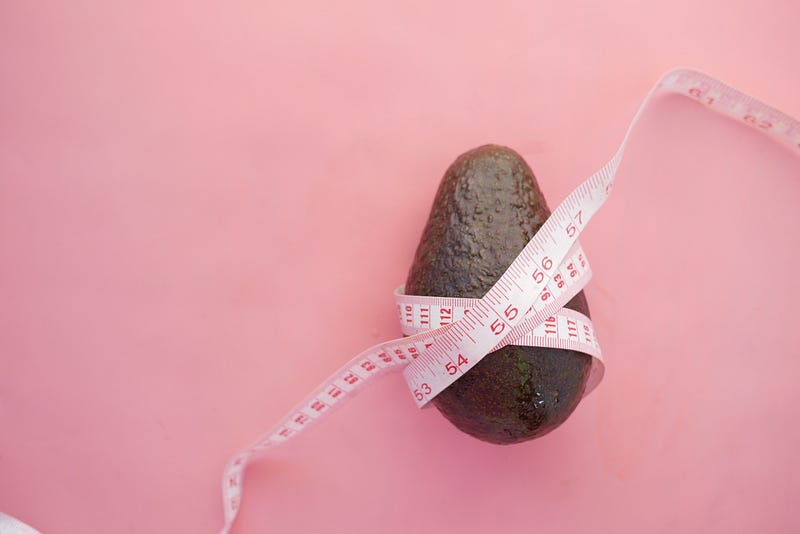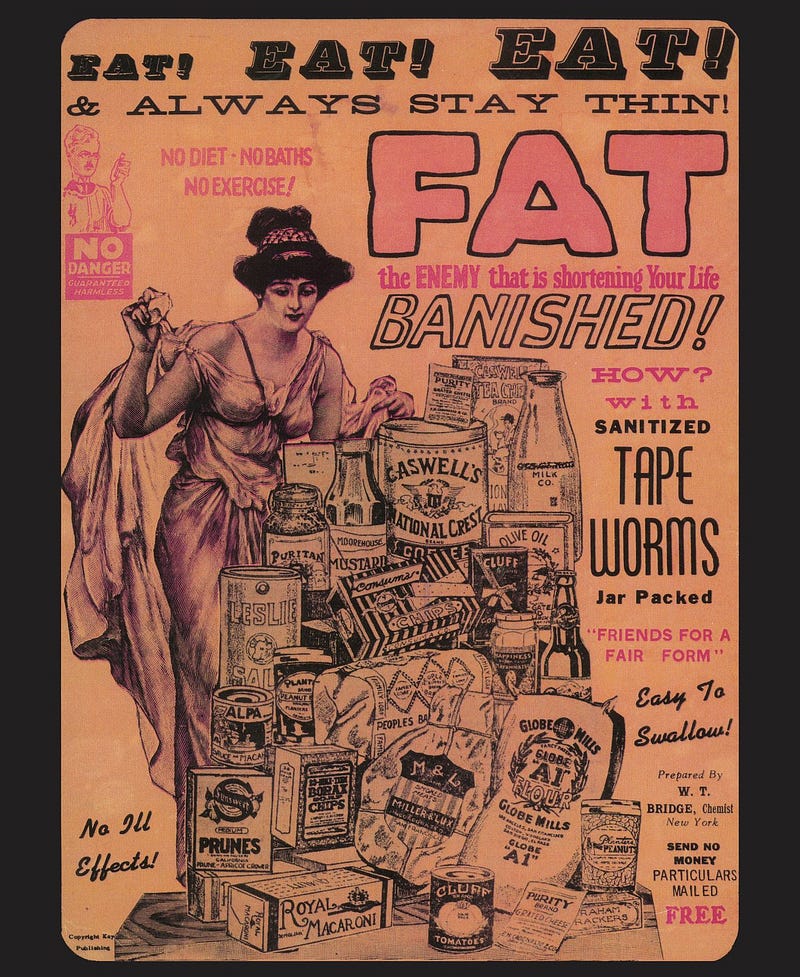The Tapeworm Diet: A Dangerous Weight Loss Trend from the Past
Written on
The History of the Tapeworm Diet
In the early 1900s, a rather alarming diet fad emerged: the tapeworm diet. This method promised effortless weight loss without the hassles of calorie counting or meal restrictions. The solution? Simply swallow a pill containing a tapeworm cyst and watch the pounds vanish.

The catch? It's not as harmless as it sounds. Infesting your body with a parasite is a terrible idea and can lead to numerous health complications. Let's delve into why this fad could be detrimental.
The Fad's Origins: Fact or Fiction?
The concept of consuming tapeworms gained traction in the late 19th and early 20th centuries, aligning with the Victorian standards of beauty that favored slim silhouettes. Advertisements even pitched “tapeworm pills” in catalogs like Sears Roebuck.

However, evidence supporting the existence of actual tapeworm-containing pills is scarce. Many of these pills likely contained stimulants or were simple placebos. While some stories link celebrities to this diet, they often serve as cautionary tales rather than endorsements. For instance, the opera singer Maria Callas was rumored to have tapeworms, but her condition stemmed from her love for undercooked meats, not from any diet scheme.
Potential Risks of Ingesting Tapeworms
So, could intentionally consuming a tapeworm work? Theoretically, one could take a deworming medication afterward. However, the risks are significant and can lead to severe health issues.
Tapeworms thrive in the intestines, feeding on partially digested food. They attach themselves using suckers, which can cause damage to the intestinal walls. Moreover, if they grow large enough, they can lead to blockages in the intestines or other organs.
Consequences of Larval Migration
The real danger lies with tapeworm larvae. These larvae can migrate from the intestines to various tissues, including muscles, liver, lungs, and even the brain. This can result in the formation of cysts that disrupt organ function and blood supply, leading to serious health risks.
Treatment Options Available
Fortunately, treatments for tapeworm infections exist. Symptoms are often noticeable before reaching the severe stages of infection. Medications can eliminate adult tapeworms, while more invasive infections may require additional therapies, including surgery to remove cysts.
The Bottom Line: Avoid the Tapeworm Diet
Whether tapeworm consumption was ever a real trend or simply an exaggerated myth, the conclusion is clear: this method of weight loss poses significant health risks. Inviting a parasite into your body is not a sustainable or safe strategy for weight management. Instead, maintaining a healthy gut microbiome is preferable to introducing unwelcome guests.
After all, who aspires to embody the frail figures of the Victorian era today?